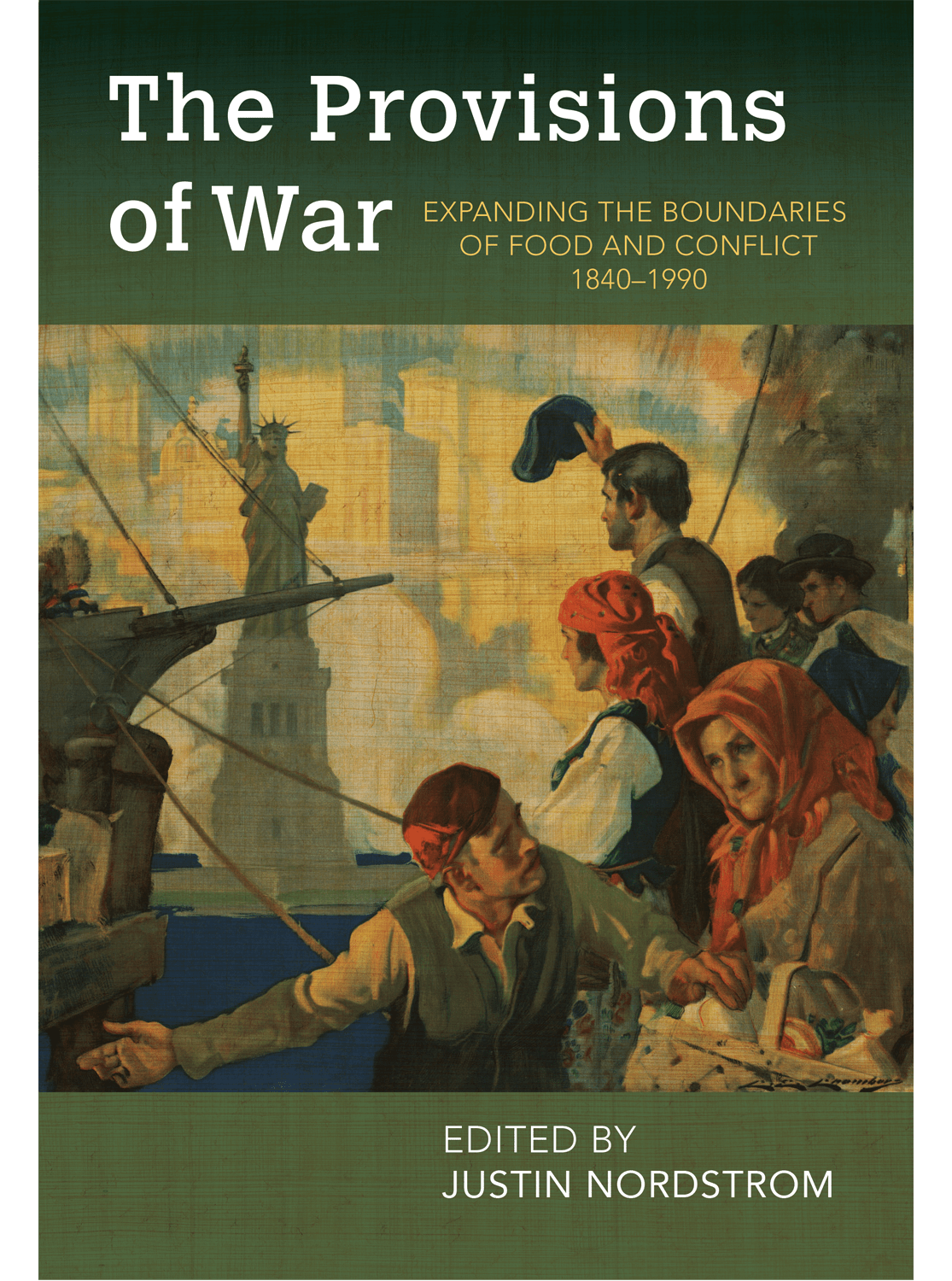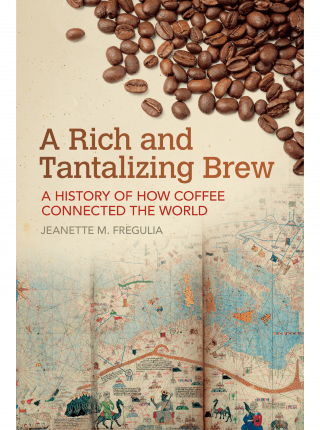The Provisions of War examines how soldiers, civilians, communities, and institutions have used food and its absence as both a destructive weapon and a unifying force in establishing governmental control and cultural cohesion during times of conflict. Historians as well as scholars of literature, regional studies, and religious studies problematize traditional geographic boundaries and periodization in this essay collection, analyzing various conflicts of the nineteenth and twentieth centuries through a foodways lens to reveal new insights about the parameters of armed interactions.
The subjects covered are as varied and inclusive as the perspectives offered—ranging from topics like military logistics and animal disease in colonial Africa, Indian vegetarian identity, and food in the counterinsurgency of the Malayan Emergency, to investigations of hunger in Egypt after World War I and American soldiers’ role in the making of US–Mexico borderlands. Taken together, the essays here demonstrate the role of food in shaping prewar political debates and postwar realities, revealing how dietary adjustments brought on by military campaigns reshape national and individual foodways and identities long after the cessation of hostilities
Justin Nordstrom is professor of history at Penn State’s Hazleton campus. He is the author of Danger on the Doorstep: Anti-Catholicism and American Print Culture in the Progressive Era and the editor of Aunt Sammy’s Radio Recipes: The Original 1927 Cookbook and Housekeeper’s Chat.
“Interesting, informative, and well-researched, these essays expand the boundaries of traditional military history, on both the battlefield and the home front, through this focus on food.”
—Amy Bentley, author of Eating for Victory: Food Rationing and the Politics of Domesticity
“This valuable volume highlights the connections between food and military history and makes a compelling case for rethinking the breadth of topics that should be considered in relation to war.”
—Kellen Backer, Syracuse University
Series Editors’ Preface
Acknowledgments
Introduction: Geography and Chronology in Food and Warfare
Justin Nordstrom
I – Expanding Geographic Boundaries
1. Yankee Pigs and Dying Cattle: Military Logistics, Animal Disease, and Economic Power in the U.S. and Colonial Africa in the Nineteenth Century
Erin Stewart Mauldin
2. The Decisive Weapon? Rations and Food Supply in the Boer War of 1899–1902
Matthew Richardson
3. Food and Anticolonialism at Gandhi’s Intentional Communities in South Africa and India
Karline McLain
4. The Making of Indian Vegetarian Identity
Mohd Ahmar Alvi
5. Hungry Empire: Manchuria and the Failed Food Autarky in Imperial Japan, 1931–41
Jing Sun
6. “We Don’t Need Red Tape, We Need Red Meat”: A Comparative Overview of the Fight against Black-Market Meat in Australia, Canada, Great Britain, and the United States during World War II
Leslie A. Przybylek
7. Food in the Counterinsurgency of the Malayan Emergency: Security, Hawking, and Food Denial
Yvonne Tan
II – Expanding Chronological Boundaries
8. “To Calm Our Rebellious Stomachs”: U.S. Soldiers’ Experience with Food during the U.S.–Mexico War
Christopher Menking
9. Food, Hunger, and Rebellion: Egypt in World War I and Its Aftermath
Christopher S. Rose
10. Tasting Recovery: Food, Disability, and the Senses in World War I American Rehabilitation
Evan P. Sullivan
11. Culinary Nationalism and Ethnic Recipe Collections during and after World War I
Carol Helstosky
12. Still Poor, Still Little, Still Hungry? The Diet and Health of Belgian Children after World War I
Nel de Mûelenaere
13. Planting Pan-Americanism: The Good Neighbor Policy and the Visual Culture of Corn, 1933–45
Breanne Robertson
14. “Six Taels and Four Maces (Luk-Leung-Seí)”: Food and Wartime Hong Kong, 1938–46
Kwong Chi Ma
15. Selling Out the Revolution for a Plate of Beans: Social Eating and Violence in Peru’s Civil Conflict of the 1980s and 1990s
Bryce Evans
Contributors
Index
Food and Foodways is a series from the University of Arkansas Press that explores historical and contemporary topics in global food studies. We are committed to representing a diverse set of voices that tell lesser known food stories and to provoking new avenues of interdisciplinary research. Our strengths are works in the humanities and social sciences that use food as a critical lens to examine broader cultural, environmental, and ethical issues. In addition to scholarly books, we publish creative nonfiction that explores these topics with a focus on food’s sensory dimensions.




